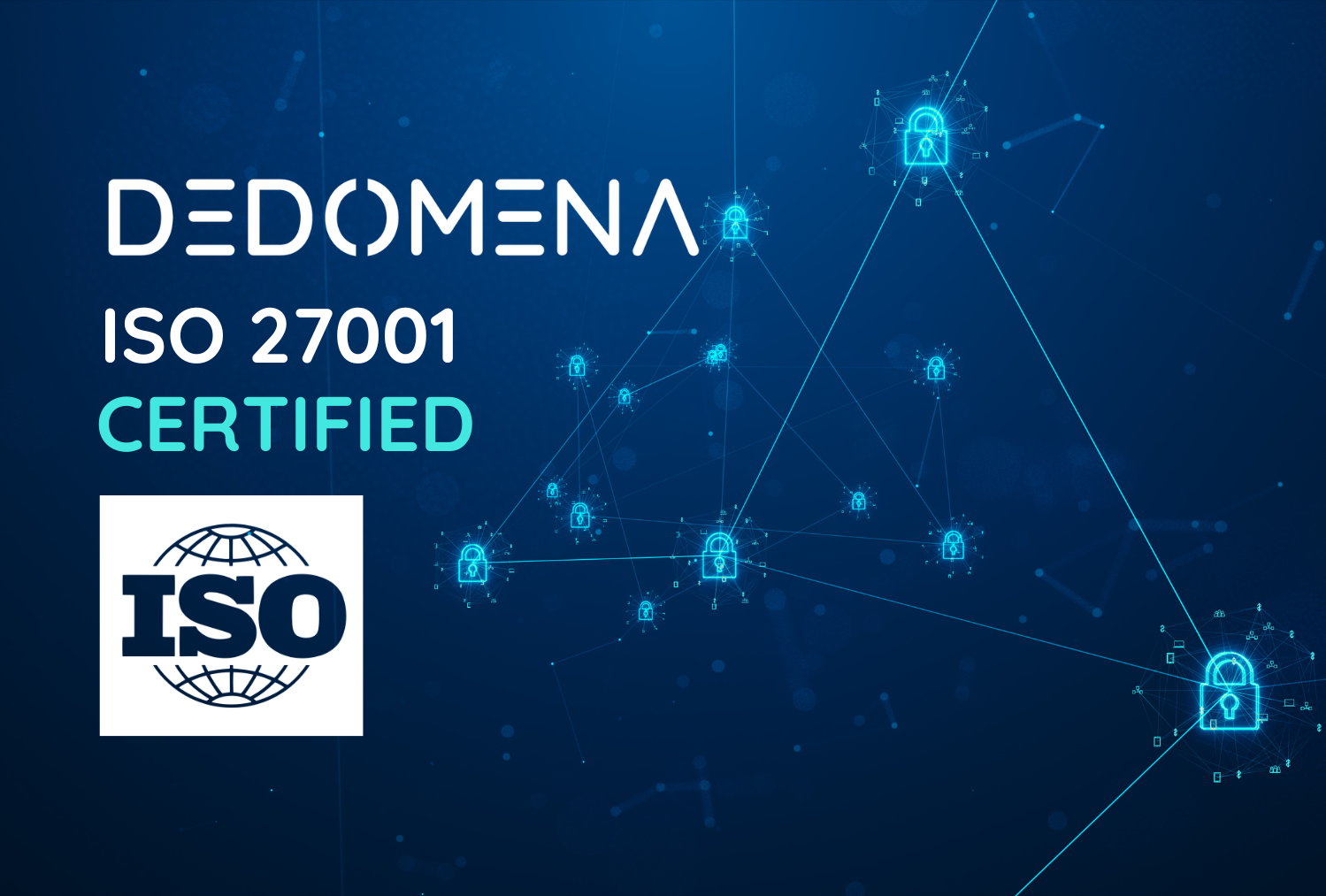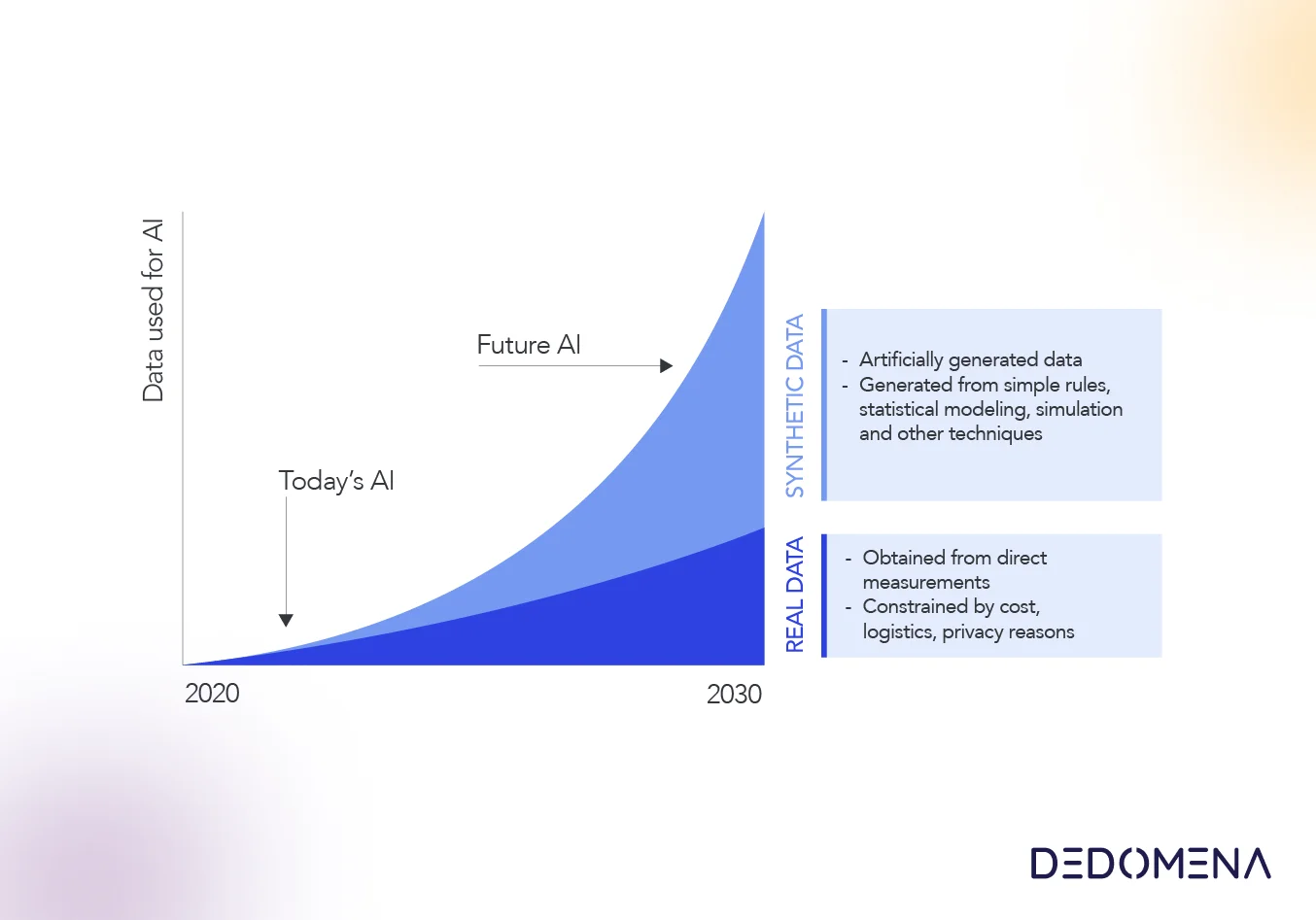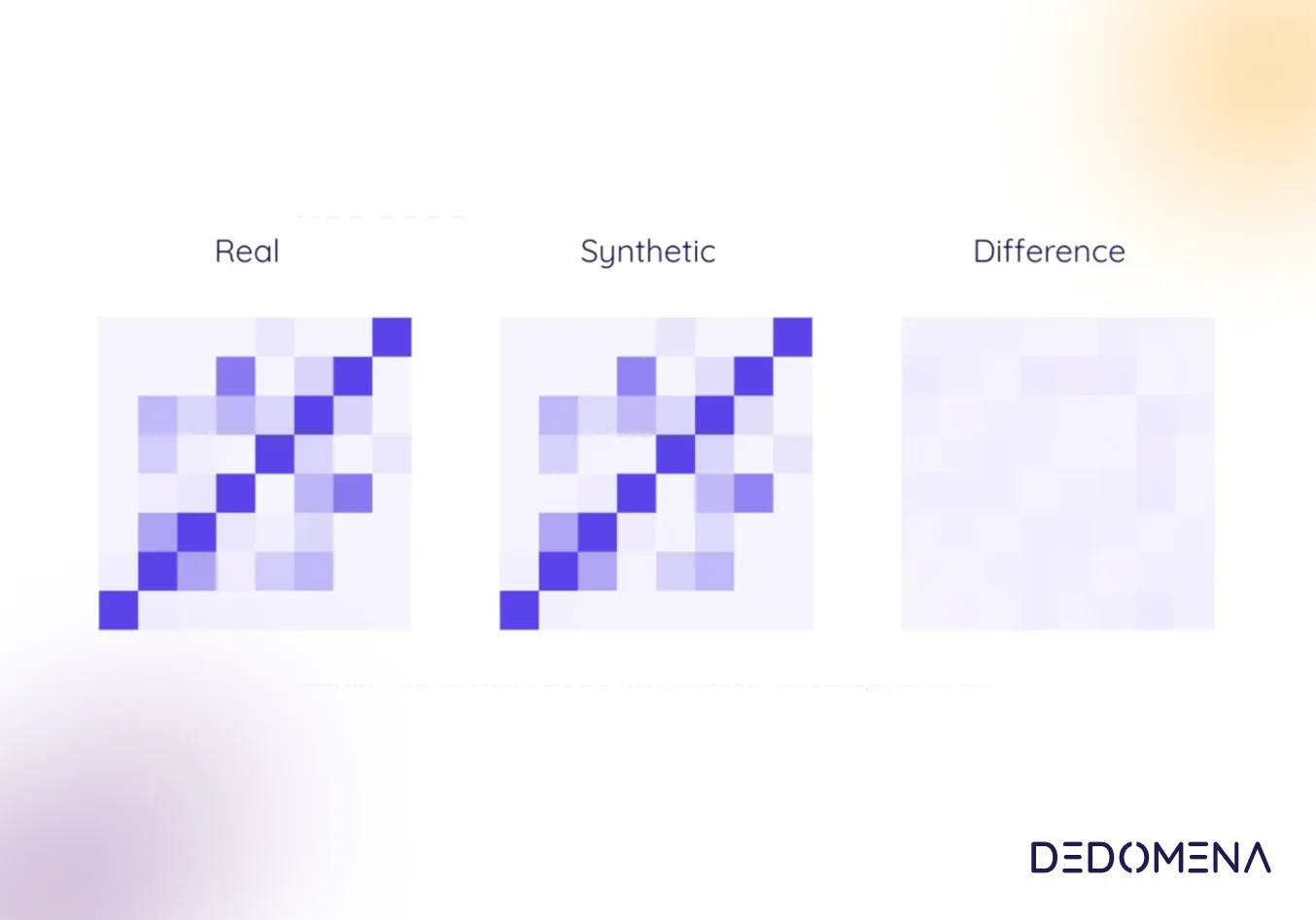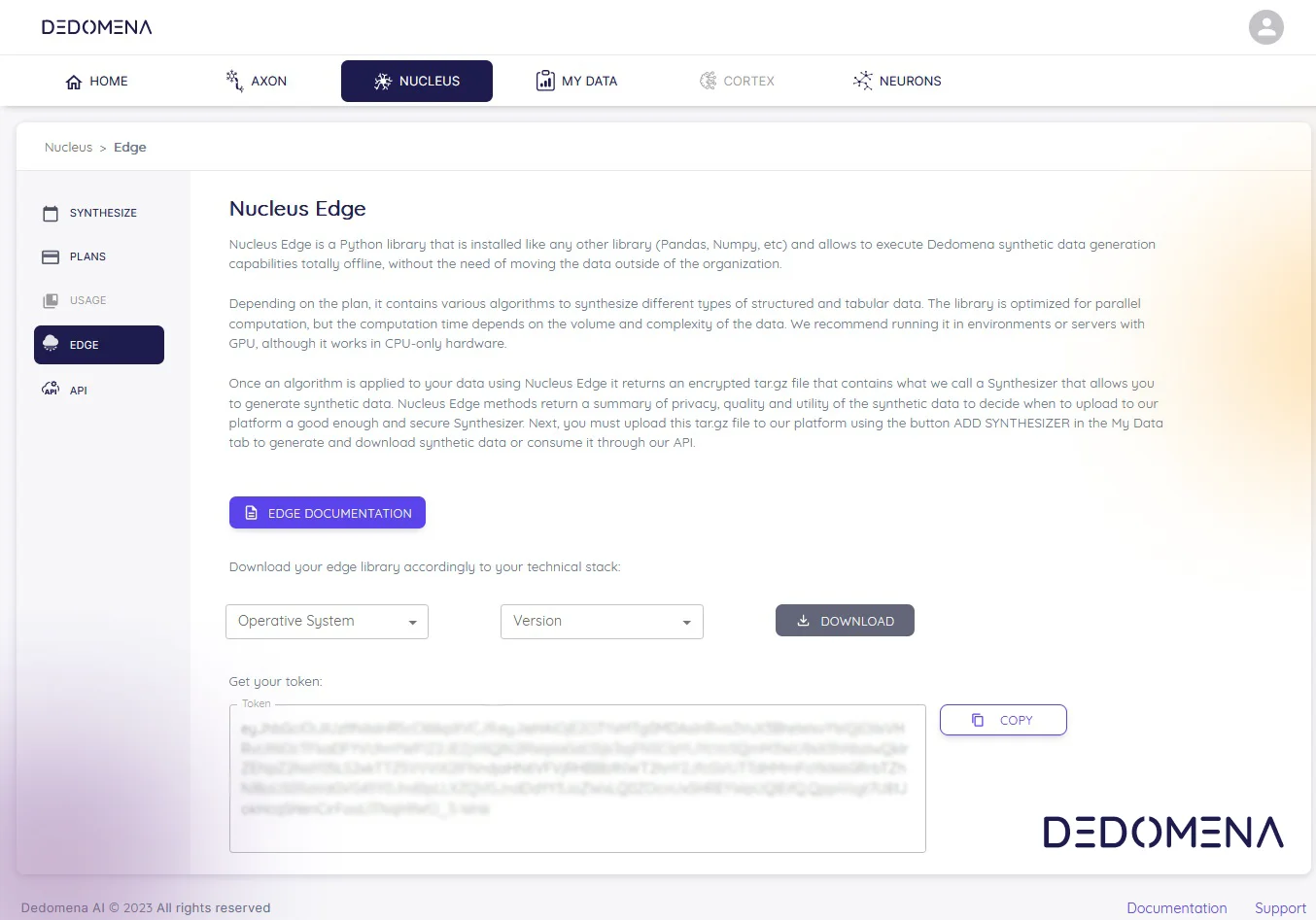In the evolution of data-driven industries, a new business and growth opportunity opens up for companies with a wealth of data. Thanks to technologies like synthetic data, these companies can now not only use their data securely and in compliance with privacy regulations but also monetize these assets. This allows them to tap into a new revenue stream from their data.
Companies are generating unprecedented amounts of data from customer interactions, transactions, IoT devices, and more. The question many organizations now face is not how to collect more data but how to maximize its value. This is where the concept of data marketplaces and the monetization of data assets come to us.
What is data monetization and a data marketplace?
Data monetization is the process of turning data assets into revenue or tangible value for an organization. This strategic approach involves not only gathering and analyzing data but also leveraging it to drive profits, enhance decision-making, and improve customer experiences.
A data marketplace is a digital platform where individuals, businesses, or institutions can buy, sell, or trade datasets. It functions similarly to other types of marketplaces, but instead of tangible goods, the asset being exchanged is data. These platforms often provide the necessary tools for data sharing, licensing, and even anonymization to ensure compliance with privacy regulations like GDPR or CCPA.
For businesses, data has the potential to unlock significant revenue streams when monetized correctly. Rather than allowing datasets to remain siloed or underutilized, organizations can capitalize on them by selling to other businesses that can benefit from the information.
On the flip side, buying data allows businesses to gain insights they wouldn’t otherwise have access to. Whether it’s demographic information, consumer trends, or machine-generated data, these insights can offer a competitive edge by revealing untapped opportunities or inefficiencies.
Additionally, data marketplaces could be equipped with built-in governance features that help enforce compliance with data protection laws. This facilitates transparency by allowing sellers to set clear usage terms, ensuring that their data is only used in the intended manner.
Types of data being monetized
Different types of data are commonly traded on data marketplaces, including:
Consumer data: Information about individuals’ buying behaviors, preferences, or demographics.
Machine-generated data: Data from IoT devices, sensors, or industrial machines.
Financial data: Market trends, trading volumes, and other financial metrics.
Location data: GPS or geo-spatial data, which is invaluable for logistics, retail, and urban planning.
How can synthetic data help?
A key challenge in the data economy is the balancing act between monetizing data and protecting privacy. Synthetic data plays a crucial role here. By generating artificial datasets that maintain the statistical properties of real-world data without revealing any personal information, synthetic data allows companies to monetize insights without compromising on privacy.
Protecting sensitive information
Synthetic data allows businesses to leverage their data assets without exposing private or sensitive information. This is crucial in sectors like healthcare and finance, where stringent privacy laws apply, and real data often contains sensitive details.
Enhancing data products
Companies providing data services and products can use synthetic data to improve and expand their offerings. By blending real and synthetic data, they can create more comprehensive datasets that meet a broader range of customer needs and expectations.
Improving Machine Learning performance
Synthetic data can complement real data to train machine learning models, enhancing their accuracy and robustness. This improved model performance can be particularly beneficial for delivering predictive analytics services.
Reducing data acquisition costs
Synthetic data helps address the needs of data-intensive applications and analytics while lowering costs related to data collection and storage. Instead of constantly gathering and storing real data, organizations can rely on synthetic data to meet their requirements.
Enabling data retention
Long-term data retention can be challenging due to internal policies and external legal requirements. However, retaining synthetic versions of datasets that must be deleted ensures that valuable historical insights and trend analyses remain available. This approach supports strategic planning and informed decision-making while complying with privacy and regulatory standards.
Dedomena AI Synthetic and Anonymized Data Marketplace: Cortex
At Dedomena AI, we understand the vast potential of data and its transformative impact on business. Dedomena’s platform allows data monetization accessible to both sellers and buyers, offering a secure, efficient marketplace where high-quality datasets can be traded.
We introduce you to Dedomena's Cortex, the leading AI-powered marketplace designed for anonymized and synthetic data. Cortex is tailored to meet a wide range of business needs by offering self-service, direct access to data, and streamlined operations that bypass lengthy evaluations. With Cortex, you can easily explore and filter datasets by industry, country, and other criteria to find the most relevant information for your specific needs. Acquire the data you need with just a few clicks, ensuring you get the best price based on the size and value of the datasets.
Beyond data acquisition, Cortex also opens new revenue streams by allowing you to monetize your own data assets. If you have valuable data that isn’t being fully utilized, Cortex provides a straightforward path to create additional income.
With Dedomena, your data works harder for you.

















































